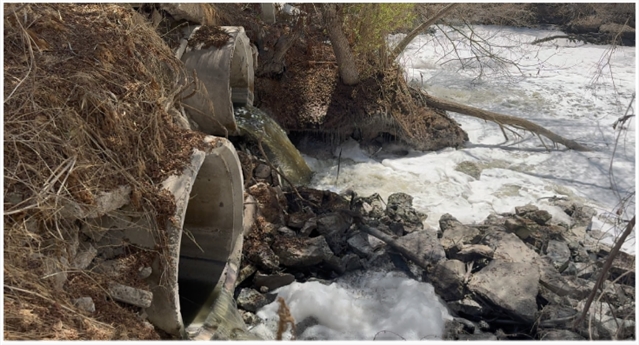
近日,美国加州大学圣迭戈分校Kimberly A. Prather团队揭示严重污染的蒂华纳河引发区域空气质量危机。该项研究成果发表在2025年8月28日出版的《科学》杂志上。
几十年来,工业化学品和未经处理的污水一直污染着蒂华纳河,最近导致加州海滩连续1300天关闭。在2024年夏季,尽管没有下雨,废水流量仍飙升至每天数百万加仑,增强了湍流热点地区硫化氢(H2S)和其他有毒气体的水-空气转移。
高废水流量和低风速导致夜间H2S峰值达到4500 ppb,超过了<1 ppb的典型城市水平。H2S浓度与社区异味报告呈强相关(相关系数r = 0.92),证实了长期被忽视的社区声音,并强调了环境不公正。这项研究表明,水质差会严重影响空气质量(尽管很少被纳入空气质量模型和健康评估),随着全球受污染水道的增加,这会产生深远的影响。
附:英文原文
Title: Heavily polluted Tijuana River drives regional air quality crisis
Author: Benjamin Rico, Kelley C. Barsanti, William C. Porter, Karolina Cysneiros de Carvalho, Paula Stigler-Granados, Kimberly A. Prather
Issue&Volume: 2025-08-28
Abstract: Industrial chemicals and untreated sewage have polluted the Tijuana River for decades, recently causing >1300 consecutive days of California beach closures. In summer 2024, wastewater flows surged to millions of gallons per day despite no rain, enhancing water-to-air transfer of hydrogen sulfide (H2S) and other toxic gases at a turbulent hotspot. High wastewater flows and low winds led to nighttime H2S peaks, reaching 4500 parts per billion (ppb)—exceeding typical urban levels of <1 ppb. H2S levels and community malodor reports were strongly correlated (correlation coefficient r = 0.92), validating long-dismissed community voices and highlighting an environmental injustice. This study demonstrates that poor water quality can substantially affect air quality—although rarely included in air quality models and health assessments—with far-reaching implications as polluted waterways increase globally.
DOI: adv1343
Source: https://www.science.org/doi/10.1126/science.adv1343
